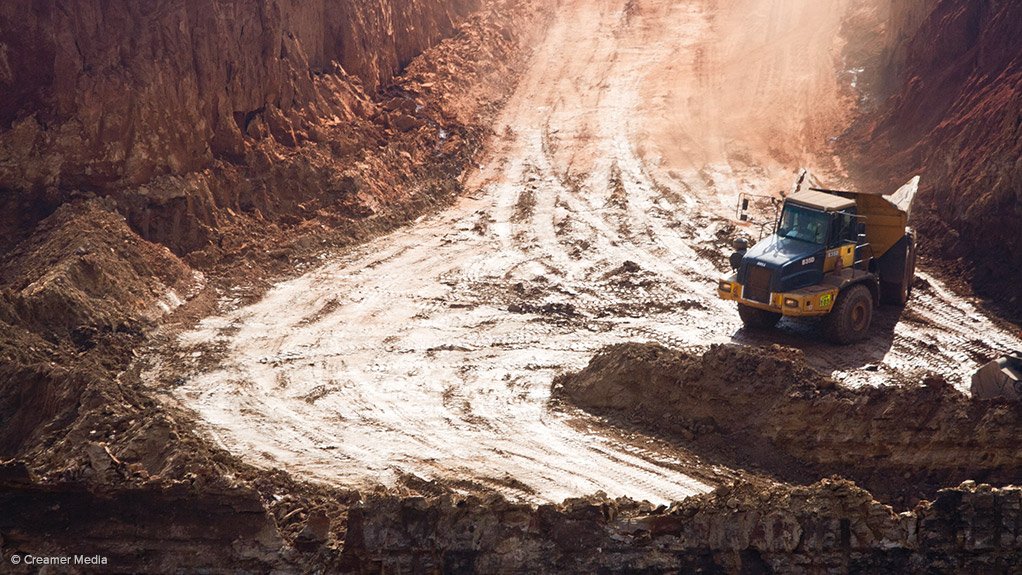South Africa’s gross domestic product (GDP) is unlikely to grow by more than about 1% this year, North West University Business School economist Professor Raymond Parsons said on Tuesday, following the announcement by Statistics South Africa (Stats SA) that GDP had contracted by 3.2% in the first quarter.
Stats SA statistician-general Risenga Maluleke earlier on Tuesday said this had been the largest quarterly decline since the 2008/9 global financial crisis.
Parsons stated that the projection of 1.5% growth for this year, as set out in Finance Minister Tito Mboweni’s 2019 Budget, was unlikely to materialise.
He stressed that, for the country to avoid further rating downgrades, it would need to revise its fiscal plan to manage shifting realities.
Parsons further noted that, with economic trends in the second quarter being mixed, including a less supportive global economy, the country’s economy was at a higher risk of drifting into a ‘technical recession’ in the first half of the year.
He said the first-quarter GDP figures had raised a “big red flag” about the country’s growth prospects and the economy’s capacity to create jobs.
He also asserted that the impact of load-shedding and policy uncertainty had been underestimated in the first-quarter GDP statistics, adding that these factors would likely contribute -0.6 of a percentage point to GDP for the year.
This was also mentioned by Maluleke, who indicated that load-shedding had contributed to the first-quarter contraction in GDP, as evidenced by the performance of the mining industry, which is a heavy electricity user.
Parsons posited that the most favourable outlook for economic growth in 2020 could still be at only about 1.6%, which, while positive, would remain below the rate at which the economy needed to grow.
He stressed the need for government to stabilise State-owned power utility Eskom, to boost investor confidence and enable a strong recovery in fixed investment.
He pointed out that the much weaker growth performance also had implications for tax revenues and deteriorating ratios in the country’s public finances.
Meanwhile, the manufacturing and the mining and quarrying industries had been the biggest negative contributors to GDP during the quarter.
The manufacturing industry decreased by 8.8% and contributed -1.1 percentage points to GDP growth.
PwC attributed the decrease to low domestic demand, in part tied to mine output, as well as a deteriorated export performance.
The mining and quarrying industry contracted by 10.8% and contributed -0.8 of a percentage point to GDP.
PwC said this was the worst decline for the mining sector in years, with the industry having suffered a protracted strike at Sibanye-Stillwater’s gold operations, among others challenges.
Positive GDP growth was limited to three tertiary sectors, being finance, real estate and business services; general government services; and personal services. In contrast, the other seven sectors all declined in seasonally adjusted activity during the quarter.
The primary sector of the agriculture, forestry and fishing industry contracted by 13.2% and contributed -0.3 of a percentage points to GDP. This decrease was mainly the result of a drop in the production of field crops and horticultural products.
The construction sector contracted for a third consecutive quarter.
Meanwhile, expenditure on real GDP fell by 3.4% in the period, Stats SA reported. This followed an increase of 1.6% in the fourth quarter of 2018.
Net exports contributed negatively to growth in expenditure on GDP in the first quarter. Exports of goods and services were down 26.4%, largely influenced by decreasing trade in precious metals, base metals and vehicles and transport equipment.
Parsons said the decreases in the various economic sectors were higher than expected and confirmed the need for the country to implement pro-growth reforms to turn the economy around and rebuild investor confidence.
EMAIL THIS ARTICLE SAVE THIS ARTICLE ARTICLE ENQUIRY
To subscribe email subscriptions@creamermedia.co.za or click here
To advertise email advertising@creamermedia.co.za or click here











